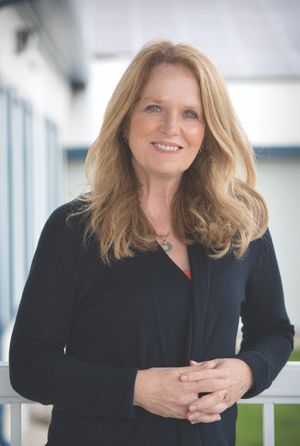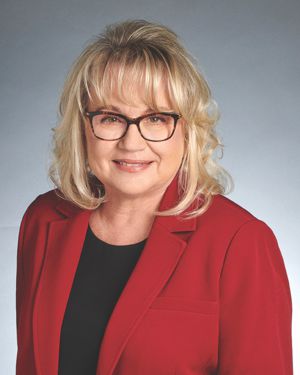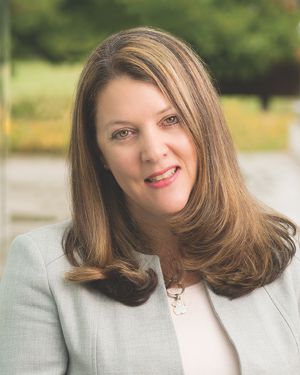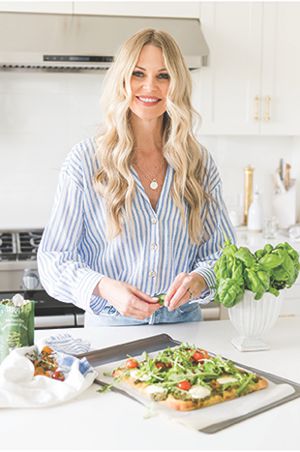Leading Change – Western Grocer

Female representation in food is not just about achieving equality; it is a necessity for fostering growth and driving innovation
By Carly Peters
In 2002, I wrote an article for Western Grocer magazine called, “Breaking the Barriers: Successful women in the grocery industry use their knowledge to get ahead.” A first-of-its-kind for the publication, it profiled seven women, including Renee Unger, president of Renee’s Gourmet, and Meena Pathak, the driving force behind Patak’s Food. These were amongst a select few. A Catalyst Canada census at the time noted that women filled only 14 per cent of the top corporate officer jobs in Canada; in food production, only 7.1 per cent of the sector saw females at the top.
The importance of telling these women’s stories was not only to give credit where credit was do, but to show the much-needed cracks forming in the glass ceiling.
“I worked alongside peers across the grocery industry as women stepped into roles that had traditionally been held by men. I did not know at the time that this progression would help shape the industry into what it is today,” says Brenda Kirk, senior vice-president of merchandising and procurement for Pattison Food Group, who started her career in grocery as a cashier in 1980 while still in high school.
Back then, cashier and deli clerk were the main jobs available to women in the sector. Over time more roles became available for women as the floral and beauty departments grew. However, the jobs that led to leadership roles did not become available until the labour agreements modernized in the late 80s, she says. It would be another decade before Kirk became Pattison Food Group’s first female store manager in 1995.
“The industry has changed dramatically since I started; agreements are no longer restrictive, views on women in leadership have become progressive and more and more women are stepping up into senior leadership roles,” she says. “It took courageous leaders to both advocate for women and to actually do something about it.”
In the more than two decades since that article, a transformative wave has been sweeping through industries, including grocery, as organizations recognize the invaluable contributions women bring to the table. The current swell is about building a workplace culture that thrives on diversity, inclusivity, and the unique perspectives that women bring, along with recognizing it just makes good business sense.
A report by Catalyst, notes that the number of women holding executive roles in the Canadian grocery industry has seen a rise in recent years. In 2022, women accounted for 32 per cent of executive positions, a notable improvement from the 25 per cent reported just five years prior. McKinsey’s 2023 Women in the Workplace report also reveals some hard-fought gains at the top, with women’s representation in the C-suite at the highest it has ever been.
It is worth noting, progress is lacking in the middle of the pipeline – female representation at the manager and director level has grown only three and four percentage points, respectively – keeping true parity out of reach.
It’s a missed opportunity. Studies have shown that teams led by women tend to outperform those led by men and that companies with a higher proportion of women, particularly in leadership positions, are more profitable. One study, “Adding Women to the C-Suite Changes How Companies Think,” published in 2021 by the Harvard Business Review reports that companies with a higher proportion of women in top leadership positions are more profitable, more socially responsible, and provide safer, higher-quality customer experiences.
The possible reasoning? To advance to the highest corporate levels, many women need to walk a difficult tightrope: They often learn to stand out by promoting novel strategies to overcome stereotypes of timidness, but at the same time, the visibility that comes with being the only one of an underrepresented group increases the professional costs of making mistakes, and so they learn to carefully weigh the benefits of their innovative proposals with the risks of potential failure. Based on this common experience, states the study, one could expect top management teams to become more focused on balancing innovation with risk mitigation as more women join their ranks.
Major grocery retailers in Canada are increasingly acknowledging the benefits of a diverse workforce, not only in terms of meeting societal expectations but also in enhancing innovation, customer satisfaction, and overall business performance. Chains such as Loblaws, Sobeys, and Metro have implemented policies and initiatives aimed at promoting gender equality, with a focus on hiring, retention, and career advancement opportunities for women.
Research from Entrepreneur suggests that women may also be more effective leaders because they are more likely to foster a positive and inclusive work environment. Studies have found that women are more likely than men to encourage collaboration, share credit, and provide constructive feedback.
This is where peer-to-peer groups have played a significant role in empowering women in the grocery industry. Organizations such as Canadian Women in Food (CWIF) are actively working to provide networking opportunities, mentorship programs, and resources to support the professional development of women in the sector. These initiatives contribute to building a supportive community, fostering collaboration, and addressing specific challenges faced by women in the grocery industry.
“Sharing is a habit,” says Cheryl Appleton, founder of Canadian Women in Food (CWIF). She specifically points to Monday Morning Manager, a concept that started during COVID where industry women gathered over Zoom on Thursday nights, usually accompanied by a glass of wine, laughs Appleton. More recently, the weekly sessions moved to Monday morning (not just to avoid Friday hangovers) to kick start the group’s week and help them prepare for any challenges that lay ahead.
“It provides feedback, clarity, and relief that whatever a person may be going through, it’s likely happened to someone else,” she explains. “We have built a resilient group of women who realized that they have knowledge to give to each other.”
Appleton adds she was extremely proud to have several CWIF members participate at UNFI Founders Panel & Vendor Summit this past November. “Along with putting a human face to these incredible brands, it’s showcasing how women are driving change, bringing innovation, and influencing the shape of the industry’s landscape.”
“The future is female,” states Lynsey Walker, vice-president of marketing and communications for the Canadian Health Food Association (CHFA), of which almost 90 per cent of staff are women. Walker, who began her career in the health food industry in 2008, notes there were always inspiring female role models, leaders, and innovators to look up to, it’s just now the industry is finally embracing them.
“I think what we’ve learned, and advice that is still relevant today is, don’t be afraid to change the status quo,” she says. “Particularly in the health food market, you see women develop products because they want to make the world a better place. They’ve developed something out of personal necessity and they want to share it. I think that’s something that resonates with consumers and makes a business successful. It’s like we say at CHFA, ‘When we all do well, Canadians live well.’”
To honour the legacy of those featured 20+ years ago and celebrate the ones who are making their current presence known, here are six more profiles of women in grocery who are shaping the industry’s future.
Left: Brenda Kirk, senior vice-president of merchandising and procurement, Pattison Food Group
Center: Cheryl Appleton, founder, Canadian Women in Food
Right: Lynsey Walker, vice-president of marketing and communications, Canadian Health Food Association
Slow in the Fast Lane
Who’d ever think that kale could be a career? Well, Julie Bednarski-Malik, founder and CEO of Healthy Crunch did. In 2014, the superfood was having a huge moment; it was even named colour of the year. Bednarski-Malik, who’d been making kale chips in her home kitchen, saw it as the right time to launch her burgeoning brand, built on her knowledge as a Registered Dietitian and trained chef, merged with a passion for clean, good food.

Within a year, Healthy Crunch was being munched in Starbucks across Canada, followed by distribution points in places like Cineplex and IKEA. Today, the brand boasts 120 skus of granola bars, crips squares, seed butters, chia jam, trail mix, instant latte, and of course, chips, available in grocery retail, online, and in some innovative partnerships, such as Staples, which saw a unique opportunity to stock Healthy Crunch’s allergen-free products as part of back-to-school promos.
Bednarski-Malik attributes the quick success of the company to what might appear to be a counterintuitive piece of advice: “Go slow to go fast.”
“The food industry as a whole is hard. It moves quickly, and there’s pressure to keep pace, particularly for women. But that’s when mistakes happen, and mistakes can cost time and money,” she explains. “Take time to get it right. Perseverance; putting one foot in front of the other. And don’t get discouraged if a door doesn’t open. It just means you’re being directed to another path.”
Margaret Hudson, president and CEO of Burnbrae Farms Limited, didn’t have many female counterparts to lean on when she joined the food industry in the 1990s. But what she could draw on was a legacy of strong, female role models from generations of the Hudson family, which owns Burnbrae Farms, her sixth-generation family business.

Starting with her grandmother and great aunts in the late 1800s, the women in her family were educated and held professional careers, two things that weren’t often afforded to or encouraged for women at that time. Her mother in particular was passionate about girls being educated to live the lives they wanted; not what society might think they should do.
Admittedly, Hudson says that did often mean working a little harder to get noticed or prove herself, particularly in the male-dominated fields of both the food business and agriculture. Recently, the landscape has shifted towards more qualified females in senior positions – “women are getting the credit they’re due,” she states. Hudson advises women to be a vocal advocate for themselves in their career development.
“Don’t be afraid to ask for the roles you want to take on. Do the work, and be open to feedback to grow,” she says. “There’s always something to work on; skills to develop.”
Personal and professional growth is certainly bolstered by mentorship, but much like the women before her, Hudson suggests women work to understand their strengths, then augment with education and development opportunities.
As the head of the largest integrated, family-owned egg company in Canada, which also holds WBE certification since her sisters are at her side in the ownership of the company, Hudson also leans on a set of values, developed by the family but valuable for all in business: “Be Humble. Dream Big. Work Hard. Do Your Bit. Have Fun Together.”
Stronger Together
In 1958, Gerhard and Ida Brandt, recent Canadian immigrants, began a deli business built on Gerhard’s skills as a master sausage maker and butcher; a trade he learned from his father and grandfather. His early passing left the promising Brandt Meats to Ida at a time when it was hard for a woman to even get a meeting with the bank manager, let alone finance and lead a company.

Brigitte Brandt-Welzel, vice-president of Brandt Meats, was only 21 when she stepped in to help her mother continue their collective dream. “There was no question of us doing it. We were determined, persistent, and optimistic,” she says. “My uncle gave us this advice years ago, ‘We have no problems, only opportunities.’ I’m a true believer in that. Challenges are a way to grow; to better the business and yourself.”
In 2023, Brandt Meats celebrated 65 years with Ida, at the age of 86, still at the helm. Along with an incredible team, which now also includes her daughter and son, Brandt-Welzel attributes the success of the women-led business to trusting your gut (“never underestimate women’s intuition”) and never stop learning.
“If you don’t understand something, ask. Ask until it makes sense,” she says, adding if women are worried it will make them look weak, it’s the opposite. “People respect you more. There’s strength in it because the easier route is not to ask. If you want to move ahead and are willing to learn, the sky is the limit.”
World of Opportunities
Julie Therrien, director of business development at Groupe Leclerc, had a sweet start to her career in food. While working her first export job for a candy company down in Mexico, she fell in love with the creativity, innovation, and connections she could make with others through products she believed in.

Brand passion has played a role in her 25-year career at Groupe Leclerc, but it’s also been paired with perseverance. “My advice is don’t take ‘no’ for an answer. When you know what you have is good, keep pushing; don’t be discouraged, don’t give up,” she says.
It’s what’s aided Therrien in building Leclerc’s Celebration line, which before 2005 was not on Western Canadian shelves, into one of the biggest cookie brands in the category. It’s served her well as she marketed Leclerc products to the U.S., and across the world. It’s what’s even helped her move through an industry that was once slow to listen to women touting new products and ideas.
“I have always been up for a challenge,” she laughs. “But the industry has evolved. Women are not only able to just play on the same level but also thrive. We bring something really valuable to the table. Now more than ever, the doors are wide open.”
Living the Dream
While she’s putting food on people’s plates, Larissa Garcia is also proving women have a seat at the table. As a free-range, organic egg farmer in B.C., she is amongst the growing group of women making up Western Canada’s agricultural landscape, balancing a space that has traditionally tipped towards males.
“I am proud to say lots of progress has been made,” she states, adding while there still are challenges being female in the industry, there are more opportunities to be heard. “Be brave and remind yourself as much as you need that you are welcome and your input is needed. The world needs our feminine voice. It’s not nearly as scary to speak up as it seems.”
The increase in peers also offers the ability to work through challenges, network, or just bend an ear with someone who understands. “Having other women to lean on and call in times of stress or frustration makes a world of difference.”
One area that feels fairly female-specific is work-life balance or lack thereof. “Our home is our farm and our farm is our home. All of the duties are always there, so finding time to truly relax and refresh is almost impossible,” she admits but is something she wouldn’t change. “I remind myself to be grateful every day for the opportunity to be a part of this industry.”

Whole Hearted
The foundation for nutritionist Karlene Karst’s passion for whole food was laid every day at 5:30 p.m. around her childhood dinner table. After a prayer was said, her family enjoyed simple, yet homemade meals made with ingredients from their farm and garden. It wasn’t just good for the body; it was good for the soul.

Her first cookbook, This Kitchen is for Dancing, celebrated the important role the kitchen and real food play in love, laughter, health, and happiness. Out of those recipes came Verily Kitchen, a line of plant-rich sauces, which further helped the mother of three and content creator share her family’s healthy food culture with others.
“Let’s just say, it was the hardest thing I’ve ever done. Creating a fresh food product, with no preservatives, and locally produced on a tight budget with only one other team member was an aggressive and lofty endeavour,” she laughs, not to mention launching during the pandemic and escalating food costs adding an extra layer of challenge.
Interestingly, Karst states being female wasn’t part of those compounds. “I think being a woman has been an advantage with Verily in that the industry seems to love and support the idea of a mom, woman, founder, and business owner hustling to make her passion and product grow,” she says, encouraging women who want to follow their food dreams to have a plan, do research and understand all layers as much as possible.
“I wish all the other women featured [in this article] all the best and success as I know how hard they’ve worked. Women supporting other women is collectively one of the greatest ways we can grow female leaders, founders, and innovators. There is room for everyone.”
-30-
Source: westerngrocer.com

